- 2022-05-13
- Campaign
Asian Heritage Month 2022

Throughout the month of May, we will present profiles of Asian Canadian Veterans. We will share mental health journeys and stories of courage, strength, compassion, and healing. These Veterans have committed themselves to serving our country, at home and abroad. Theirs is a long history of heroism and selflessness to share, reflect upon, and celebrate.
We encourage you to follow our Asian Heritage Month posts on our social channels – Facebook, Twitter, and LinkedIn – and to return to this page throughout the month for new profiles of brave Asian Canadian Veterans.
For resources highlighting the many contributions of Asian Canadian Veterans, please visit:
Additional resources:
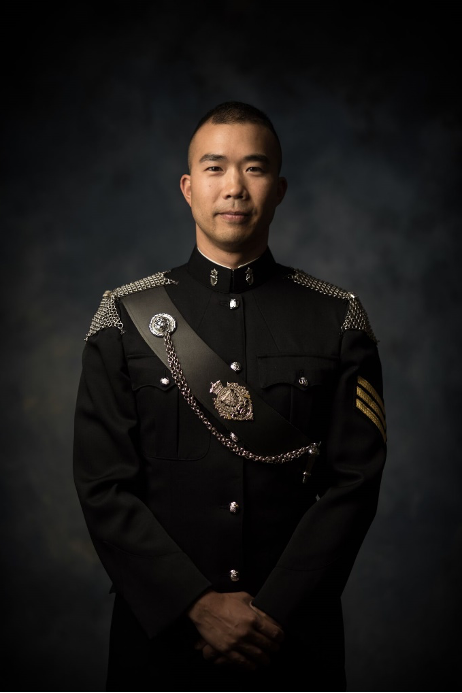 Lieutenant Tim Chi Lee’s family emigrated from Hong Kong in the 1980s and settled in East Vancouver. The Lee family was eager to integrate into the Vancouver lifestyle. Tim Chi’s childhood was similar to his peers — going to school, playing hockey, and hanging around with friends. Despite being born in Vancouver, at times, Tim Chi felt like an outsider. People would ask him about his background. They would ask, “Where are you from?” When he’d reply that he was from Vancouver, the usual follow-up question was, “No, where are you really from?” Thankfully, this was a rare occurrence in the diverse and multicultural city of Vancouver. However, Tim Chi experienced a difficult childhood that later manifested itself as depression and anger. Lieutenant Tim Chi Lee’s family emigrated from Hong Kong in the 1980s and settled in East Vancouver. The Lee family was eager to integrate into the Vancouver lifestyle. Tim Chi’s childhood was similar to his peers — going to school, playing hockey, and hanging around with friends. Despite being born in Vancouver, at times, Tim Chi felt like an outsider. People would ask him about his background. They would ask, “Where are you from?” When he’d reply that he was from Vancouver, the usual follow-up question was, “No, where are you really from?” Thankfully, this was a rare occurrence in the diverse and multicultural city of Vancouver. However, Tim Chi experienced a difficult childhood that later manifested itself as depression and anger.
The impetus to join the Canadian Armed Forces (CAF) came from Tim Chi’s father, who regaled him with stories of what the Canadian military had accomplished on the world stage. “My father believed that serving in the Canadian Armed Forces was noble, that it was a force for good,” says Tim Chi. At a young age, Tim Chi’s mother encouraged him to enroll in the Navy League Program, where he revelled in the structure, sense of belonging, and comradeship that the program provided.After high school, Tim Chi joined the British Columbia Regiment – BCR (Duke of Connaught’s Own), an Armoured Reconnaissance unit of the Army Reserves. During his time with the BCR,), he enjoyed driving, especially vehicles with a manual transmission, and learning the Armoured Recce trade. “I was given every opportunity to succeed,” Tim Chi explains. He felt that he was continually supported by both his peers and the chain of command in his endeavours. During his initial years in the military, Tim Chi was able to operate within a military environment because he didn’t have the mental space to feel or focus on anything other than training. This would eventually catch up to him. “I didn’t deal with it until it began to interfere with my work,” he adds.
In 2008 when Tim Chi was working full-time at the local Brigade Headquarters, he discovered that he wasn’t able to cope with or ignore the depression that was starting to take a toll on his life. “There would be days that I just wasn’t functional. I would regularly miss work, ignore phone calls, lock myself at home for the day, or have panic attacks when stressed. There were two concurrent triggers that really brought on my realization that I needed professional help. First, my inability to keep a regular schedule was starting to lead to disciplinary actions at work,” Tim Chi explains. While some of his co-workers and supervisors questioned Tim Chi’s reliability, others recognized the signs and symptoms of depression and steered him toward Canadian Forces Health Services to get help. Concurrently, his girlfriend at the time saw how he was dealing with stress in an extremely unhealthy way and urged him to seek professional help. “These two intersections led me to the realization that I could not keep packing down or running away from feeling, but that I had to work through the things that were in my head,” he adds. Tim Chi started to work with a social worker at HQ and began unpacking what the root causes were. He then was referred to a counsellor who specialized in military and police clients. “I was given the opportunity to learn coping mechanisms as well as how to understand, reframe, and work through a lot of the trauma, pain, and anger that I had been carrying with me,” says Tim Chi. Despite the stigma and potential career implications, Tim Chi persevered. “At that point in my life, I had no other choice. I was either going to lose my [military career] for disciplinary issues, or I could work to improve the situation.” Tim Chi had hit bottom and decided to seek help. Tim Chi’s experience dealing with his mental health diagnosis was difficult, especially within his family and the Asian community. At that time, some members of the community never discussed or actively avoided the topic of mental health. “My parents were extremely shocked to find out that I was seeking professional help for mental health-related issues. They didn’t understand what it meant to seek the help of mental health professionals and just wanted me to get fixed quickly. I had to explain that the road to recovery would be a process that wasn’t going to happen overnight,” he says. His perseverance paid off. Thankfully Tim Chi continued seeking help and went on to have a fulfilling career in the CAF. “I recognize that I was extremely blessed at that time to have a supervisor who believed in my potential and helped me through the mental health system.” After a period of time, leadership responsibilities were entrusted to Tim Chi, and he grew as a leader to become a Senior Non-Commissioned Officer (NCO) within the regiment. He took on significant leadership roles with the BCR and was recognized by the unit leadership for his dedication and work ethic. He has fond memories of the Primary Leadership Qualification course, where he and his course mates were pushed beyond their physical and mental limits. While some of his peers lamented the experience, Tim Chi relished in the challenge. Some career highlights include deployment on domestic operations such as Op LENTUS in 2017, and various opportunities to travel at home and abroad. Tim Chi has seen every province in the nation, travelled to Europe to participate in regimental battlefield tours, and climbed Mount Kilimanjaro in East Africa with members of the BCR. During his time in the Intermediate Leadership Program, a national course for progression to the rank of Warrant Officer, Tim Chi was challenged by one of his peers to pursue a career as an officer in the CAF.
Tim Chi credits his time in the army and the support of family and friends for his success. A serious commitment to his faith, family, and physical and mental wellness helps him manage the demands of military life. He is encouraged by the fact that the CAF has come a long way in the realm of mental health and well-being for its members. “Back then, they didn’t have peer sentinels and the briefings on mental health still seemed quite “distant” or inaccessible when discussed among junior ranks. I also felt the stigma of having these issues come from my family history, rather than from an operational stress injury,” Tim Chi explains. Today, there is specific mental wellness training for all rank levels that helps create awareness, reduce stigma, and train supervisors. He currently works in the Operational Support Squadron at 19 Wing Comox. Tim Chi appreciates how fortunate he is, looks to each day with gratitude, and embraces the opportunity to serve Canada. |
Staff Sergeant (Ret’d) Jim Wong feels very fortunate to have fulfilled his dream of becoming a Royal Canadian Mounted Police (RCMP) officer. He retired as a Detachment Commander, having completed 37 years of service in uniform and plainclothes duties, primarily in Alberta and Ontario.
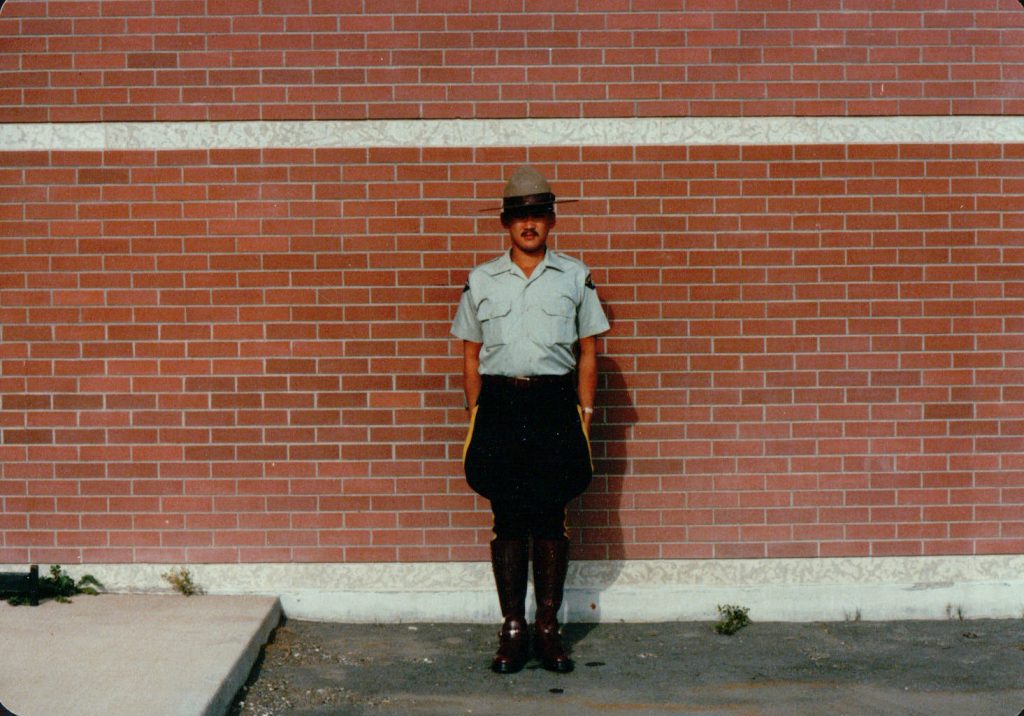
Jim’s family immigrated to Canada from China in 1950. They settled in the small town of Marwayne, Alberta (population 250), after his father purchased a restaurant with money he had saved from being a waiter in Edmonton. Language barriers made it harder for Jim’s family to adapt to Western culture. Jim’s two older siblings found it particularly hard as they had to start school in a new language. While they worked in the family’s restaurant after school, Jim and his younger brother, who were born in Canada, were free to get more involved in school activities and sports.
Jim’s interest in policing started at the age of 12 when an RCMP officer intervened during an incident where two intoxicated individuals in the restaurant were assaulting his father. After this experience, Jim discovered that he wanted to help people, just like the Mountie had helped his dad. At that moment, he knew he could fulfill this vision by joining the RCMP.
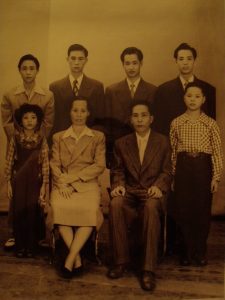
Over his 37-year career wearing the “red serge,” Jim had postings all over the country. He was involved in operational policing, plainclothes duties, and investigated organized crime, motorcycle gangs, street gangs, and other serious criminal activity.
Being a member of Canada’s national police service was punctuated by several traumatic and life-altering events resulting in some mental health challenges. However, after receiving assistance from his chain of command, Jim found the necessary help and he’s been able to overcome many of these debilitating experiences. He continues on his mental health journey, is an advocate for peer support, and assists other members as a representative in the RCMP Members Employee Assistance Program.
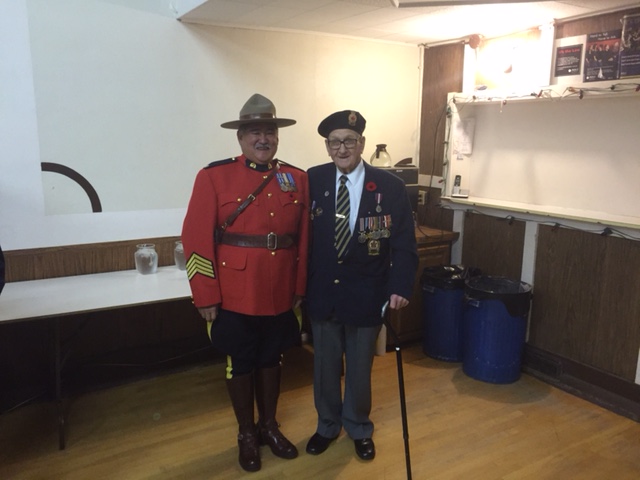
“I have many fond memories from all my experiences, and I can say I never had a ‘bad’ posting. I always try to immerse myself in the community and am very involved with community events and projects,” says Jim. Some of the more memorable projects were Coats for Kids and the Liquor Bag Campaign where school children wrote or painted pictures on the liquor bags at Christmas with the theme of “don’t drink and drive.”
Jim was also involved with a mentorship program in partnership with local sports teams such as the Calgary Flames and the Stampeders. These teams would supply tickets to the RCMP, who in turn would have RCMP mentors accompany disadvantaged youth to these sporting events. Jim’s greatest desire was to help people, and that is what he got to do on a daily basis. “I worked with many fantastic men and women,” he explains. “The experiences and life skills that I learned in the RCMP are invaluable, and I feel it has made me a better person, father and grandfather,” Jim adds. It was a great adventure and he’d be happy to do it all over again.
Growing up in the Lower Mainland of British Columbia, MCpl (Ret’d) Stan Clark’s first exposure to the military was going on army cadet exercises with his Scottish father, a British Army Veteran and member of the Canadian Armed Forces (CAF).
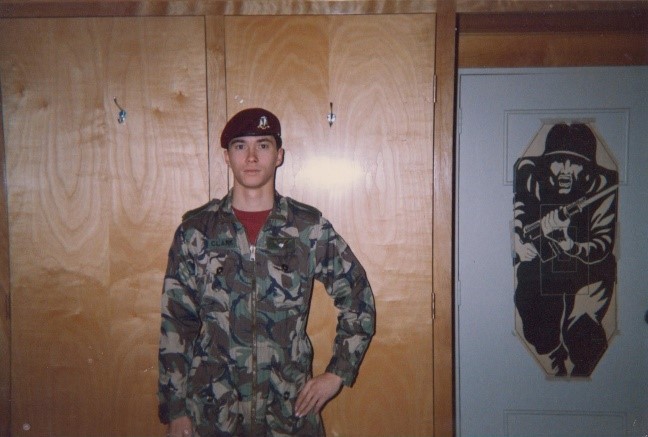
Enjoying the rigours of mountain climbing and experiencing the outdoors of B.C. and the Yukon were the impetus for Stan to join the Navy League and eventually the Army Cadets. “My passion for the mountains was ignited when I attended a cadet leadership course in Banff and then subsequently an Outward Bound adventure in Wales,” says Stan.
Stan’s Korean mom was less enthusiastic about his desire to join a military organization due to her agonizing memories of life in North Korea and having to escape its oppressive military regime. She was fortunate enough to escape to South Korea with some of her siblings but unfortunately not all family members in North Korea able to flee. Additionally, she had endured the demands of being a military spouse. She feared her son joining the CAF, as that would mean a life of going on dangerous deployments and being in harms way — similar to her husband’s experience. However, when she saw how being part of a cadet unit created a sense of belonging, purpose and comradeship for Stan, she eventually relented and gave her blessing.
Stan started his military career as a Reservist with the Royal Westminster Regiment (R Westmr R). He eventually transferred into the Regular Force and became a member of the 1st Battalion of the Royal Canadian Regiment (RCR).

Despite serving in the elite Canadian Airborne Regiment as a young paratrooper, Stan left full-time service to finish high school and examine other career options. He returned as a Reservist to the R Westmr R and was able to share his newfound skills acquired in the Regular Force.
After the brief hiatus, Stan realized that he missed the structure and employment opportunities that the Regular Force offered, so he rejoined. His postings and deployments included Operation HARMONY in the former Yugoslavia, 3rd battalion RCR (Parachute Company), and then getting posted to CFB Suffield and rebadging to the Princess Patricia’s Canadian Light Infantry (PPCLI). Stan deployed on Operation APOLLO (first rotation into Afghanistan) in 2001.
Unfortunately, Stan was injured during a friendly fire incident at Tarnak Farms while participating in live fire ranges. An unintentional 500-lb bomb was dropped on Stan’s platoon, killing four soldiers and injuring many more. Thus began Stan’s journey toward mental, physical and spiritual health. He was finally posted to the 39th Brigade in Vancouver, where he was given the opportunity to heal and start his medical release from the CAF.
Stan found that he received significant help from the physician’s assistant at CF Health services, who encouraged him to share his experience with other wounded members. This was his first exposure to peer support, which he continues to advocate for today.

Today, Stan uses his military skills and love for the great outdoors to support his recovery. He shares his experiences with other Veterans and hosts outdoor events so that fellow military members can find healing through physical activity and comradeship. He works with his local army and air cadets units, where he can continue to mentor and provide guidance to Canadian youth.
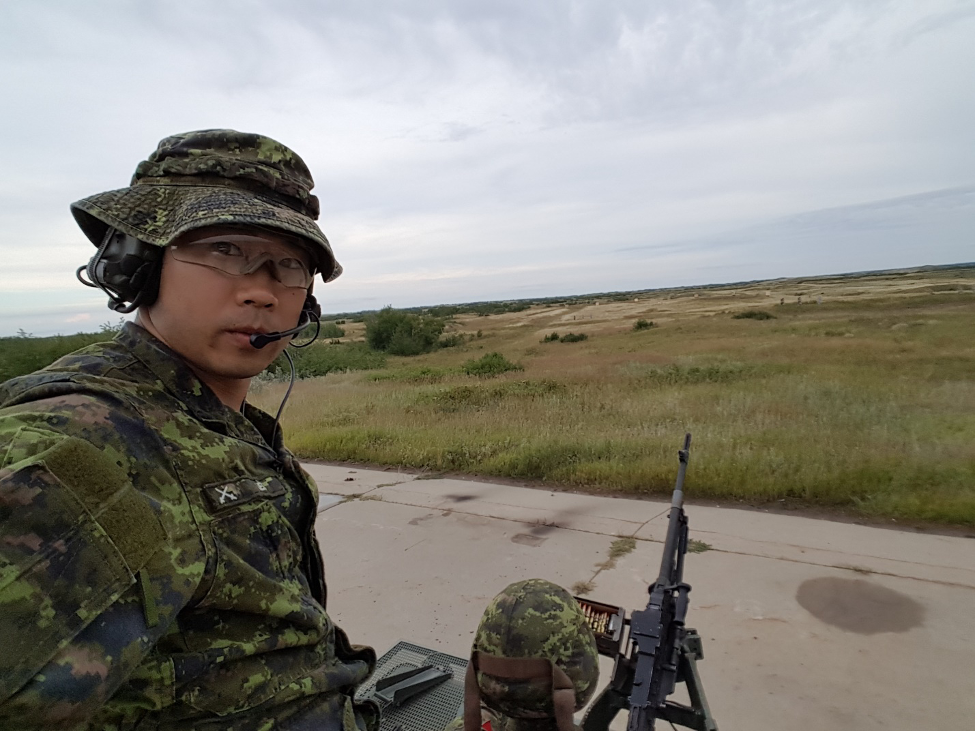
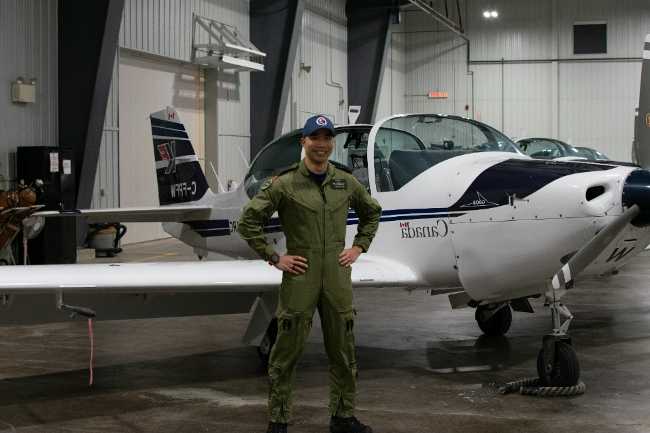 After considerable reflection and being action-oriented, Tim Chi decided to see if he had what it takes to be a pilot in the Royal Canadian Air Force. After a rigorous selection process, he was one of three selected out of twenty applicants. Finally, the dream to fly aircraft in the CAF was becoming a reality.
After considerable reflection and being action-oriented, Tim Chi decided to see if he had what it takes to be a pilot in the Royal Canadian Air Force. After a rigorous selection process, he was one of three selected out of twenty applicants. Finally, the dream to fly aircraft in the CAF was becoming a reality.
